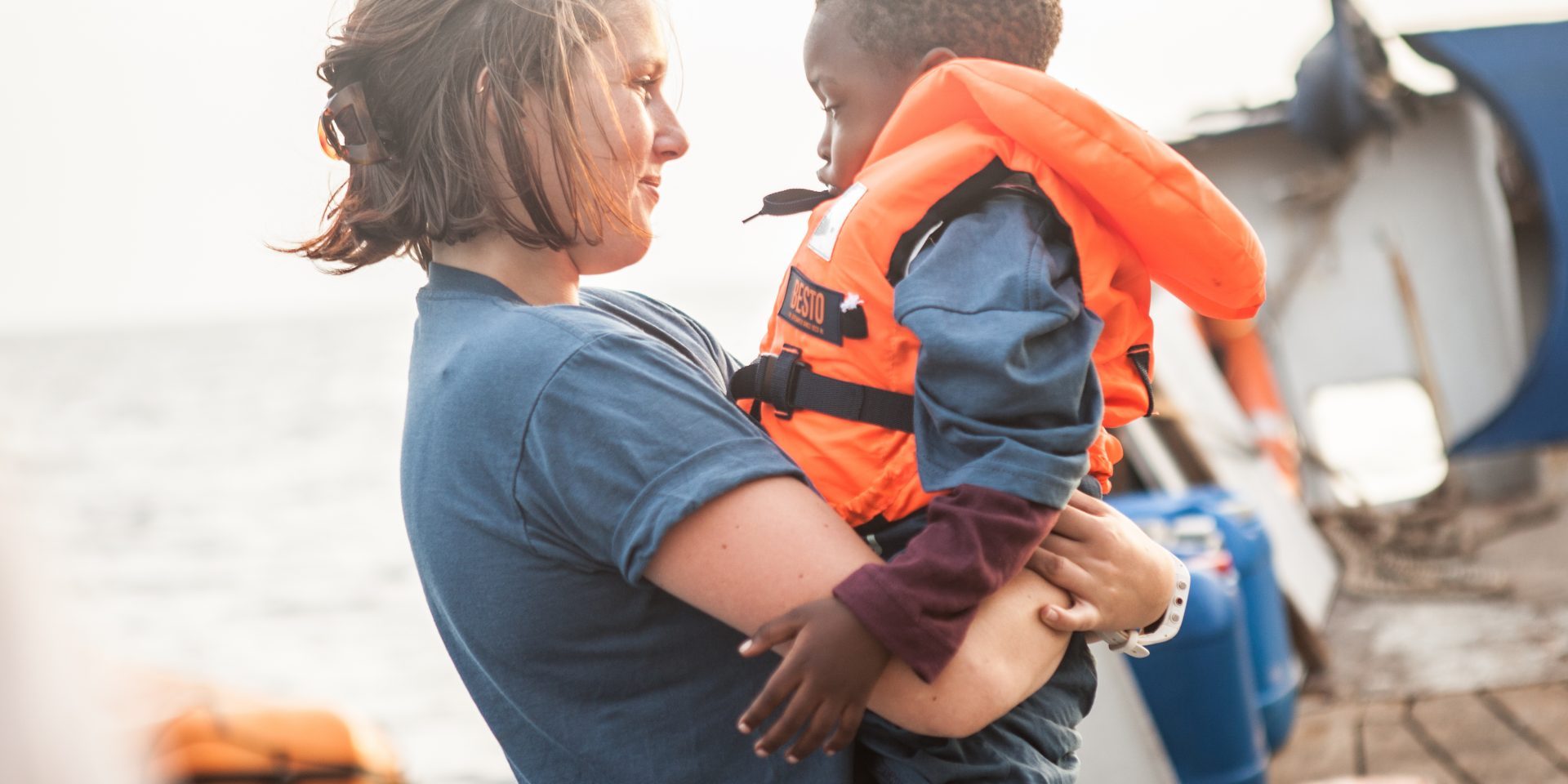A search in theory and practice
Melanie Glodkiewicz, with her buttoned-up blouse, red lipstick, bright eyes behind horn-rimmed glasses, stares at her notebook and takes a sip of her black coffee. She has a tight schedule for the day, the working title of her document is “SW-Advocacy-Group-Project_V2”. But the Belgian is not preparing a lobbying strategy for a big company. Instead she’s been interning for six months with the humanitarian organisation “Human Rights at Sea” and part of her practical semester is her work at Sea-Watch. It has been a while since the 22 year old treated herself to a coffee in one of Berlin’s hip districts. Like almost all the other activists, she is volunteering her own time for the sea rescue organisation.
The lectures on Humanitarian Aid at the Belgian University weren’t challenging enough for Melanie. “With all that theory, I was missing the link to the situation out there”, explains the Master’s student. Therefore, the most important time of her internship semester was the practical time she spent at sea “out there” herself. In October, she joined a rescue mission aboard the Sea-Watch 2 ship. Departing from Malta, no crewmember knew how unpredictable the situation was. Melanie will never forget the night of October 21st 2016. Uniformed members of the so-called Libyan Coastguard violently interrupted the rescue operation resulting in several people drowning in front of her eyes.
Back in the safe harbour, Melanie told the Magazine Vice about the worst moment of her life: “There were people everywhere, desperately trying to keep their heads above water and screaming for help.” She has overcome the shock, but the pictures have been engrained into her mind. The incident has made her even more committed to fight for human rights at Europe’s borders.
In order to not only fight the symptoms of the crisis in the Mediterranean but also change the structures, Melanie spent many hours in the Berlin office of Sea-Watch to create a “Code of Conduct”, a guideline for all civil sea rescuers formulating how they should act at sea. Besides Sea-Watch, the SAR initiatives Jugend Rettet, SOS Méditerranée, Sea-Eye, Life Boat and even Doctors Without Borders (MSF) signed the document. After many sleepless nights everyone gave the go ahead for the tenth version of the draft.
“It was an important experience for me – I have understood how important it is that various NGOs stick together in humanitarian crises”, reflects Melanie. She has been back at the university in Brussels for a week now where she wants to finish her Masters thesis as quickly as possible. She hopes her experience at the organisation will help to build on her strategies for advocacy, lobbying and cooperation. „Even after my internship, I will focus my volunteer work on fighting against false allegations from European institutions. The world needs to know that search and rescue is not criminal!“
„I have seen Sea-Watch develop into a more incredible organisation each day!“
Photo: © 2016 – Judith Büthe











